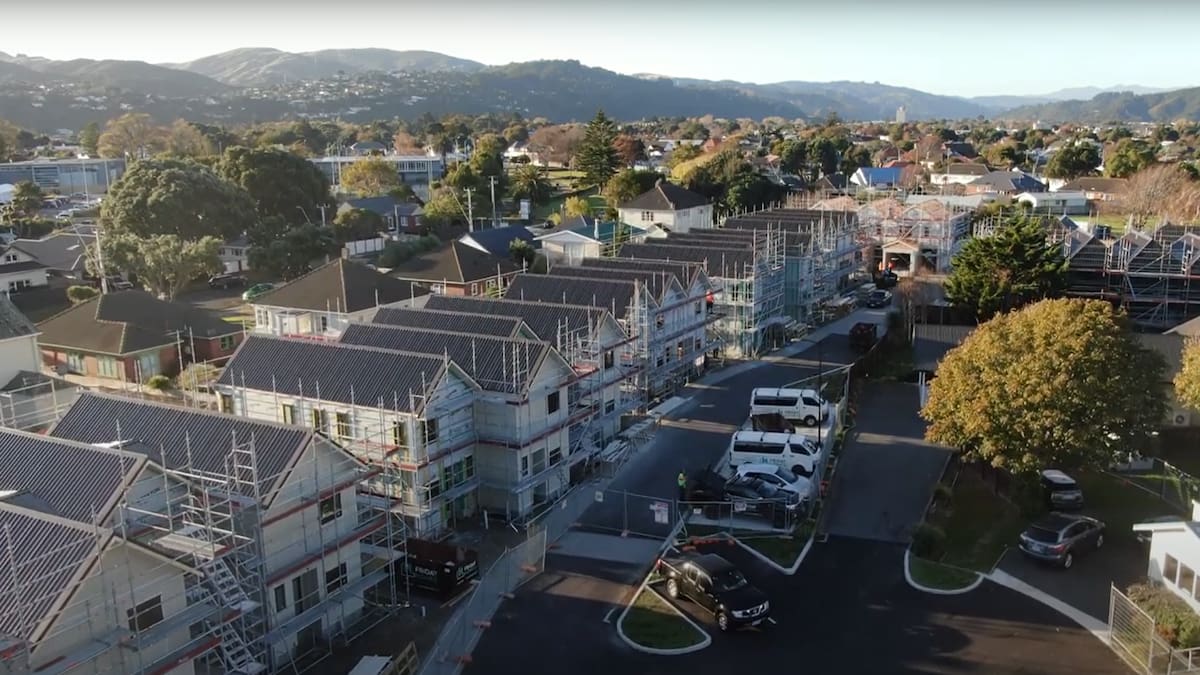“It is a break-even model, which is really important and I think that’s what people, particularly in the current economic climate, are looking for when it comes to how we take the pressure off rates and debt the councils hold.”
Lower Hutt Mayor Campbell Barry. Photo / Mark Tantrum
He said establishing a provider that also has a development arm has never been done before, and was initially set up to help the Hutt build more homes amid slow building growth.
“There was a real issue in the late 1990s, we were suffering from quite significant depopulation – we were literally going backwards.”
It is a strategy Barry believes other councils could emulate to help ease pressure on their own social housing costs, as Wellington faces a social housing bill which has ignited debate about its whether the council should provide housing at all.
‘The Hutt has got the answer’ – Wellington City Councillor
The cost associated with Wellington City Council’s portfolio has become a key issue in recent years, with its social housing spend becoming one of the council’s largest expenses.
In its Long-Term Plan for 2024 to 2034, the council has earmarked $488.6m on operational costs for the running of social housing and an additional $559.6m on renewing and upgrading its units.
The upgrade works are part of fulfilling a 2007 deal with Helen Clark’s Labour Government.
Wellington City Council is one of New Zealand’s largest landlords. It owns more than 1900 social housing units across the city, housing 3000 low-income tenants.
Many of these properties were built in the 1960s and 1970s and no longer meet the needs of tenants, with hundreds of millions of spending planned for upgrades and earthquake-strengthening.
The operations of the city’s social housing programme, which the council itself has previously described as having a “critical” financial sustainability issue, were transferred to Te Toi Mahana, a Community Housing Provider set up by the council, in 2023.
The council gifted it $10m of property and $23m in funds to help it build new social housing.
Wellington City Councillor Tim Brown is on the board of Te Toi Mahana and says an approach closer to the Hutt’s is needed for the provider.
Councillor Tim Brown, pictured during a Wellington City Council meeting. Photo / Mark Mitchell
“I think it is really is the way to go and good on them for showing big brother to the south how to do it”, Brown, who also sits on the Infrastructure Commission board, said.
He said Te Toi Mahana could be in line to follow the UPL strategy.
“For Te Toi Mahana, there are two options, one of them is it goes ahead and builds a bunch of social houses and spends its money and hey presto, that’s kind of the story, or they could partner with developers and other capital providers in the same way that the Hutt Valley have and produce both an upgraded social housing for themselves, but also the affordable houses which they could sell on market.”
As for the current approach, Brown said it is only sustainable as long as money continues to be poured into it.
“As long as Wellington City Council continues to write the cheques, they can continue to provide the housing, it’s just at some point, maybe the ratepayers say ‘we’re sick of this’.”
Ethan Manera is a Wellington-based journalist covering Wellington issues, local politics and business in the capital. He can be emailed at ethan.manera@nzme.co.nz.

